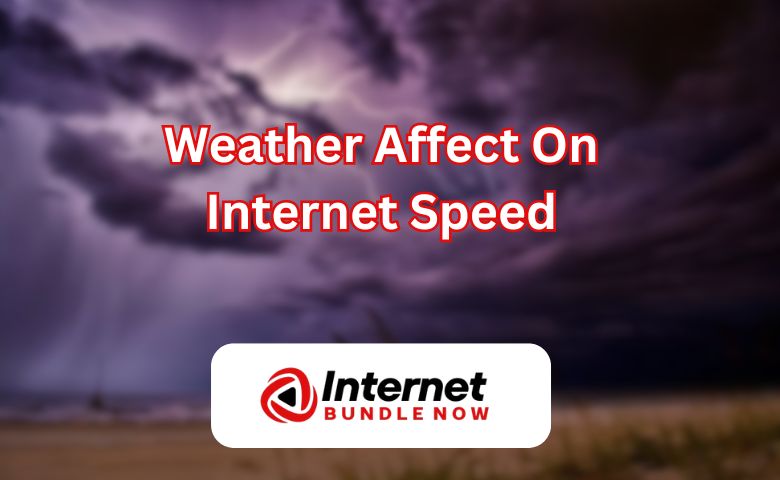- TV
How to Get Premium Channels with Your Cable TV Bundle?
Access to exclusive entertainment content is a priority for many viewers seeking a richer television experience. Premium chan...
Explore More
When you experience a sudden drop in your internet speed, you might wonder if the weather could be the culprit. Indeed, various weather conditions can influence internet performance, but the extent of the impact depends largely on the type of internet connection you have. Let’s dive into how different weather conditions affect internet speeds across various connection types such as satellite, DSL, fiber, and cable, and explore potential solutions to mitigate these effects.
Weather Impact:
Satellite internet is most susceptible to weather changes. Heavy rain, snow, and even dense cloud cover can disrupt the signals between your satellite dish and the orbiting satellites, causing a noticeable slowdown or complete loss of service. This phenomenon, known as "rain fade," occurs because water droplets can absorb or scatter the satellite signals.
Install Protective Covers: Placing a protective cover over your satellite dish can help reduce the impact of rain and snow.
Regular Maintenance: Keep your dish clean and free of debris, and ensure it's properly aligned.
Upgrade Equipment: Modern satellite systems are more resilient to weather, so upgrading your equipment might help maintain a more stable connection.
Weather Impact:
DSL connections, which use telephone lines to deliver internet service, can be affected by extreme weather conditions. Heavy rainfall or flooding can damage the infrastructure, such as the telephone lines and street cabinets, leading to slower speeds or outages.
Infrastructure Inspection: Regularly inspect and maintain the integrity of the lines and junction boxes to prevent water ingress.
Weatherproof Enclosures: Ensure that all external equipment is housed in weatherproof enclosures to protect it from the elements.
Weather Impact:
Fiber optic cables are relatively immune to weather conditions since they transmit data using light rather than electrical signals. However, physical damage to the infrastructure due to severe weather events like storms, flooding, or freezing temperatures can still disrupt service.
Buried Cables: Where possible, ensure fiber optic cables are buried underground to protect them from storm damage.
Quick Repairs: Having a responsive maintenance team can minimize downtime by quickly addressing any physical damage.
Weather Impact:
Cable internet, which relies on coaxial cables, can be affected by severe weather. Heavy rain, strong winds, or snow can damage the aerial cables or cause power outages that impact internet service.
Backup Power: Equip your home with a backup power supply to keep your modem and router running during power outages.
Cold weather & Internet Connection
Cold weather itself typically doesn't affect internet speed directly. However, if the cold leads to ice accumulation or causes physical damage to cables, you might experience connectivity issues.
Hot Weather Affect Your Internet
Extreme heat can potentially cause overheating in external network equipment, which might slow down your internet connection.
Wind and Your Internet
Wind itself doesn’t affect internet signals, but it can cause physical damage to cables and dishes, or lead to power outages that interrupt service.
Raining and Your Internet
Rain can cause issues like water ingress into cables and junctions, or disrupt satellite signals, leading to a loss of connection.
Cloudy weather & Your Wi-Fi
Cloudy weather generally does not affect Wi-Fi signals directly, but if the clouds are part of a larger weather system causing rain or snow, it could indirectly affect your internet connection.
Weather can have a variety of effects on your internet speed, depending on the type of connection you use. While satellite internet is highly susceptible to weather disruptions, DSL, fiber, and cable connections are less so, though they can still experience issues due to physical damage or power outages. Understanding these impacts and implementing preventive measures can help you maintain a more consistent and reliable internet connection, regardless of the weather.
Latest insights, tips, and updates from our experts.
Admin
How Does Weather Affect Internet Speed in USA?